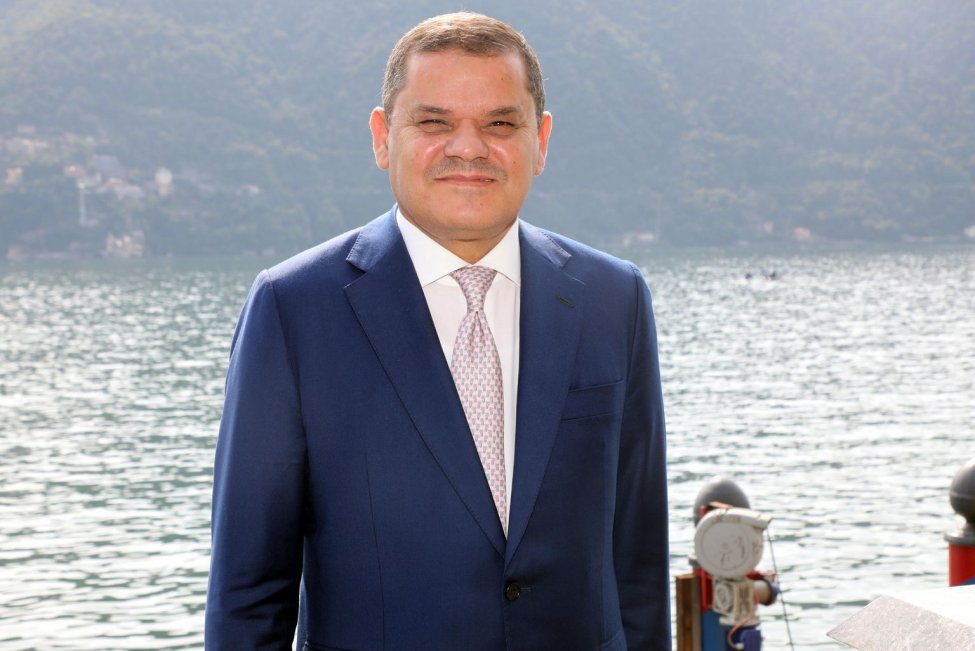Abdul Hamid Dbeibeh, prime minister of Libya’s Government of National Unity, poses at the banks of Lake Como during the 47th edition of the annual Ambrosetti Forum in September 2021. File Photo by Matteo Bazzi/EPA-EFE
Jan. 24 (UPI) — A top political affairs official with the United Nations told the Security Council on Monday that the path to stability in Libya “is through the ballot box, not the gun” after elections were postponed in December.
Rosemary DiCarlo, under-secretary-general for political and peacebuilding affairs, spoke to the Security Council on Monday to urge the international community to remain united in supporting Libya’s national elections despite their delay.
“So many Libyans have told us, the way towards a stable and united Libya is through the ballot box, not the gun,” she said. “We must stand with them.”
Libya has been recovering from the turmoil of a civil war that started in 2014 on the heels of the 2011 revolution, which overthrew the rule of late dictator Muammar Gaddafi.
The civil war ended after a cease-fire was reached in October 2020, and the United Nations has sent a support mission to consult with the country’s High National Commission for Elections and political institutions on the legal framework and security for the elections process.
The HNEC postponed the highly anticipated elections on Dec. 24 over security and legal concerns while the House of Representatives in Libya has worked to establish a new elections timetable and process. It was not immediately clear when the country hopes to hold the postponed elections.
DiCarlo welcomed developments in Libya including meetings between top leaders of rival armed forces in the country and the work toward the reunification of the Central Bank of Libya.
However, she said that “political uncertainty in the run-up to the elections has negatively impacted the overall security situation,” which could threaten the anticipated elections.
She noted that the country has experienced “documented incidents of elections-related violence and attacks based on political affiliation.”
“We are particularly concerned that women and men working to protect and promote women’s rights continued to be targeted by hate speech, defamation and incitement to violence,” she said. “Some of the disturbing social media posts that posed a threat to the safety and security of these persons were removed after UNSMIL brought them to the attention of social media platforms.”
